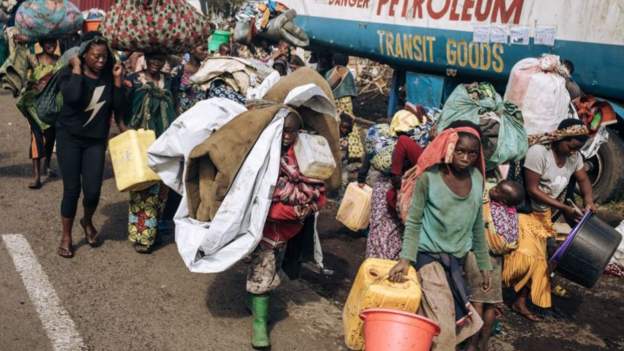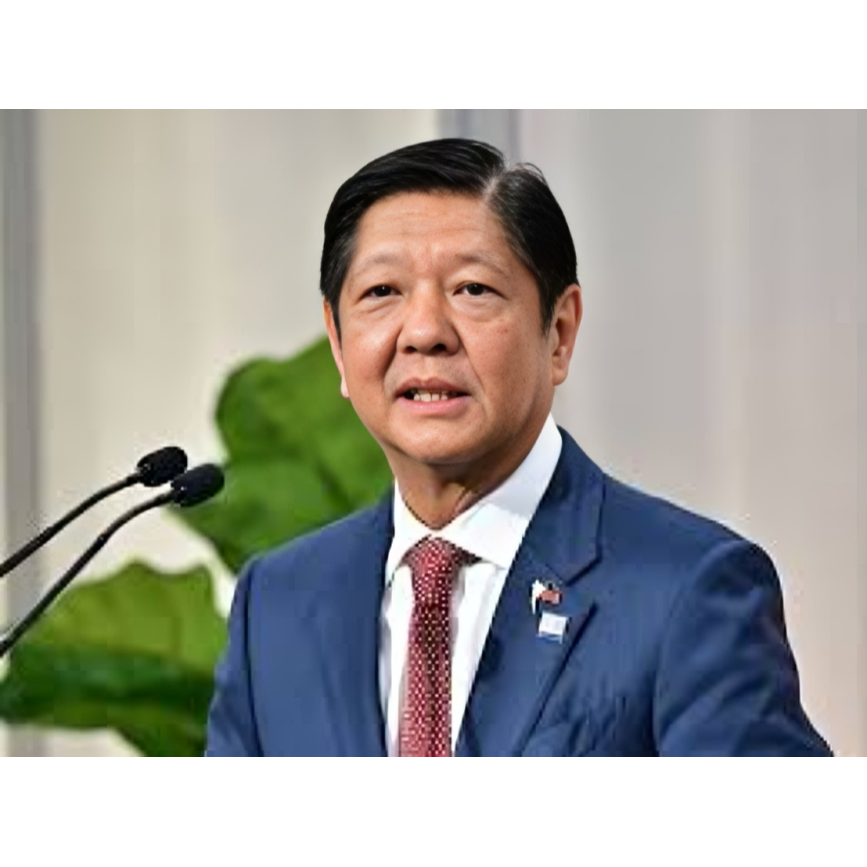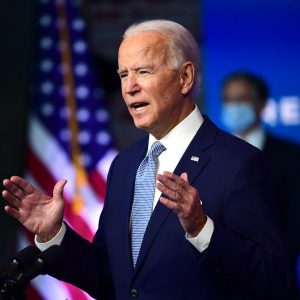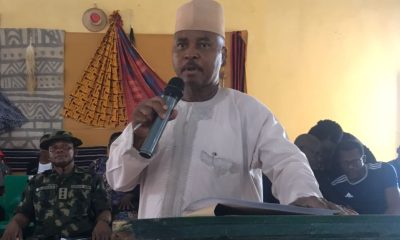Foreign News
Over 130 Civilians Executed by Congo Rebels – UN

A UN investigation has found that at least 131 civilians in the Democratic Republic of Congo died in a November attack by the M23 rebel group.
The UN report said the massacre took place in two villages – Kishishe and Bambo – in the Rutsuhuru district of the eastern North Kivu province.
Investigators said the attack appeared to be a reprisal for a current government offensive on the rebels.
M23 denied the massacre, blaming “stray bullets” for just eight deaths.
But the UN’s Monusco peacekeeping mission in the country said 102 men, 17 women and 12 children were “arbitrarily executed” by the rebel group “as part of reprisals against the civilian population”.
At least 22 women and five girls were also raped, the report said
“This violence was carried out as part of a campaign of murders, rapes, kidnappings and looting against two villages in the Rutshuru territory as reprisals for the clashes between the M23″ and other armed groups, including the FDLR, the statement said, adding that the true number of killed could be even higher.
It also said that M23 fighters then buried the bodies of the victims in “what may be an attempt to destroy evidence”.
The government had initially said that over 300 civilians were killed in the attack, which took place between 29-30 November. But its spokesman Patrick Muyaya accepted on Monday that it was difficult to arrive at a firm figure as the region was under M23 occupation.
Congolese authorities have described the killings as war crimes and called for deeper investigation, while protests have been organised in the capital, Kinshasa and Goma, the main city in North Kivu.
Investigators said they couldn’t access the villages where the massacre occurred, but they interviewed 52 victims and direct witnesses who fled the attack in the town of Rwindi about 20km (12 miles) away.
Witnesses told the UN’s team that members of the rebel group broke down doors, shot civilians, looted property and burned villagers out of their homes.
“MONUSCO condemns in the strongest terms the unspeakable violence against civilians and calls for unrestricted access to the scene and the victims for emergency humanitarian assistance,” the investigators said.
An M23 spokesperson rejected the UN’s findings and insisted that it had “asked that there be investigations together with us in Kishishe but the UN never came”.
“The UN is under pressure from the government to come up with a figure, even if it is false,” spokesperson Lawrence Kanyuka said.
The M23 group was formed a decade ago. It says it is defending the interests of ethnic Tutsis living in DR Congo against Hutu militias and has been involved in a long-running conflict against the central government.
After lying dormant for several years, it took up arms again last year and has been leading an offensive in eastern DRC against the Congolese army.
The massacres in Kishishe and Bambo followed clashes with the FDLR militia, which includes some of the ethnic Hutu leaders of the 1994 genocide in Rwanda who fled across the border into what is now DR Congo.
The M23 has meanwhile accused pro-government forces of “genocide and targeted killings” against the Tutsi community. It said its positions in Bwiza were attacked on Tuesday, despite the current ceasefire agreement.
The M23 has said it is ready to withdraw from the some of the territory it controls. It made the announcement on Tuesday following peace talks in the Kenyan capital, Nairobi, even though it did not attend the talks.
DRC President Felix Tshisekedi has accused neighbouring Rwanda of seeking to destabilase the country by providing weapons to the rebels, an allegation recently endorsed by UN experts. However, this has been denied by the Rwandan government.
More than 100 different armed groups operate in the mineral-rich eastern DR Congo, which has been ravaged by conflict for about three decades.
Several countries have sent troops to DR Congo this year as part of an East African Community (EAC) taskforce to try and disarm the groups and bring peace to the area.
Foreign News
Philippine President Calls for Resignation of All Cabinet Secretaries

Philippine President Ferdinand Marcos Jr. has asked all of his Cabinet secretaries to submit their resignations on Thursday in what he called a “bold reset” of his administration following last week’s mid-term elections.
The elections saw more opposition candidates win crucial Senate seats, signaling shifting political tides.
Marcos, the 67-year-old son of the late Philippine dictator overthrown in 1986, won the presidency in a landslide in 2022, a stunning political comeback marked by a call for national unity.
However, his vice-presidential running mate, Sara Duterte, also widely popular, later distanced herself from Marcos in a falling-out that had sparked intense political discord.
Marcos had since emerged as one of the region’s most vocal critics of China’s aggression in the disputed South China Sea, bolstered by support from the United States and other allies. Domestically, he continued to face significant challenges, including high inflation, unfulfilled promises to lower rice prices, and growing concerns over kidnappings and other crimes.
“This is not business as usual,” Marcos said in a government statement.
“The people have spoken and they expect results, not politics, not excuses. We hear them and we will act.” (AP/NAN)
Foreign News
Pakistan Blames India for School Bus Attack That Killed 5

Three children and two adults were killed in a blast on Wednesday that targeted a school bus in south-western Pakistan, with Islamabad blaming India for the attack.
Terrorists targeted the bus in the city of Khuzdar, in the restive province of Balochistan, as it took students to a military-run school, Balochistan Chief Minister Sarfraz Bugti said.
Preliminary findings suggested that it was not a suicide attack, he said at a press conference.
The dead included three young girls who were students of grades 6, 7 and 10. More than 40 students were wounded, many of them said to be suffering severe wounds.
Bugti said that his government had intelligence reports that Indian National Security Advisor Ajit Doval was planning something in Balochistan but did not expect him to target innocent children.
“After facing a humiliating defeat on the battlefield, India has resorted to despicable and cowardly acts,” the media wing of Pakistan’s military said in a statement.
“Planners, abettors and executors of this cowardly Indian sponsored attack will be hunted down and brought to justice and heinous face of India will be exposed in front of the entire world,” the statement added.
Prime Minister Shehbaz Sharif will make an emergency visit to the province where he would be briefed on the attack by terrorists, allegedly backed by India, said a statement issued by his office.
The Baloch Liberation Army (BLA), a rebel group fighting for the independence of the region from Pakistan, earlier claimed it targeted the bus, but said it was transporting the soldiers.
Islamabad claims that the BLA is backed by India.
Violence orchestrated by sub-nationalist rebels has surged in Balochistan, a region that borders both Afghanistan and Iran, and is a hub of Chinese investment and connectivity projects.
Earlier this month, India and Pakistan carried out tit-for-tat drone, missile and airstrikes targeting each other’s military installations and airbases.
The nuclear-armed rivals agreed to the ceasefire on May 10 but continue to accuse each other for terror incidents. (dpa/NAN)
Foreign News
Thousands Protest in Pakistan After Drone Strike Kills 4 Children

Thousands of people in north-west Pakistan on Tuesday blocked a highway by placing the coffins of four children who were killed by a suspected drone strike.
The protests in the Mir Ali area of North Waziristan region began earlier on Monday after a family home was hit, local resident Mohamed Jamal Dawar said.
It is not clear who was behind the incident.
Local activist Zahid Wazir said the drone was operated by the Pakistani military.
He said the home was likely mistaken as a hideout used by Islamist militants.
Pakistani intelligence officials said the explosives were fired by a quadcopter that was being operated by the Taliban militants to target a nearby military post, but that it missed the target.
An independent verification was not possible as the region is inaccessible to outsiders.
Activists of a local rights group, the Pashtun Tahafuz Movement, which is against the militarisation of the region by both the military and the Pakistani Taliban, vowed to continue the protest.
“We will continue to demand justice for our kids,” Wazir said.
The Pakistani military and Islamist militants have been fighting each other in the region for more than two decades.
More than 80,000 Pakistanis, an overwhelming majority of civilians, have lost their lives in years of violence. (dpa/NAN)



























